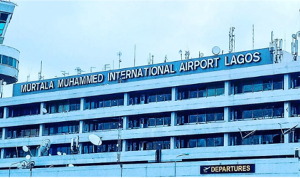The latest African Economic Commission report has painted a gloomy picture about education in Ghana, claiming that numeracy and literacy rate is on the decline through out the country.
The report said despite education reforms in 1987 aimed at improving the efficiency, quality and relevance of education to the socio-economic development of the country very little has been achieved. Not even the commitment of increasing access to secondary and higher education under the Ghana Vision 2020 launched in 1996 improved the fortunes of both formal and non-formal education. Have these policy interventions had the desired effect? “No”, the ECA quotes a recent empirical study as saying. According to the ECA the recent empirical study found school quality increasing initially and declining steadily thereafter.
The average Ghanaian is not an avid reader and students graduating from various levels of education can hardly express themselves in English, let alone write good sentences.
A large percentage of Ghanaian children are not able to read newspapers, to write a letter, and use mathematical concepts to solve real life problems. The ECA report is buttressed by the Ghana Living Standards Survey of 1998 which indicates that only 11 percent of children aged between 9 and 14 years are able to write a letter.
In April 1994, of the 42,105 candidates who took the Senior Secondary Certificate Examinations (SSCE), 3.2 percent or 1,354 of the number qualified to be short-listed for preliminary entrance into the universities. This has prompted debate over whether or not English should be made compulsory from basic to university level.
Given the fact that education is key to development, the current low level of numeracy and literary appreciation could hamper human resource development. The study found evidence that cultural and religious backgrounds are important determinants of schooling. It says Ghanaians with Christian backgrounds are more likely to be literate than Ghanaians with other religious backgrounds. The study finds evidence of gender bias, with women less likely to be literate than men.
According to the report, due to inequality in the distribution of educational facilities among the 10 regions in the country literacy and enrolment rates are the lowest in the northern regions, where few parents are able to meet the cost of education.
The main reason for the persistent poor learning outcomes in the basic education sector is the chronic under investment, which is traceable to the conditionalities tied to donor aid. Some analysts say the conditions have led to cuts in per capita spending on social services, including education. Poor conditions in the schools, perceived low quality and relevance of school curriculum and lack of teachers also contribute to low enrolment and poor quality education.
Public Agenda has gathered that a junior secondary school at Dromankuma in the Nkoranza District has since 1999 scored zero percent in the Basic Education Certificate Examinations (BECE). Statistics at the Nkoranza District Education Directorate indicate that between 1999 and 2002, 70 candidates made up of 42 boys and 28 girls passed out from the school but none of them qualified for admission into senior secondary school. The dismal situation has prompted Mr. Jarvis R. Agyemang-Badu, the new District Director of Education, to organise a forum to discuss with the people and teachers the causes of the low performance and how to rectify the situation. Addressing the people Mr Agyemang-Badu said the situation demanded immediate attention because there was no hope for the youth.
The statistics also revealed that the school registered 10 candidates, five boys and five girls for the 2003 examination, but one of the girls dropped out of school as she became pregnant. Mr. Agyemang-Badu expressed concern about the negative attitude of some of the parents towards education of their children because they send some of them to the farms on school days. Some of the parents engage their children in their petty trading activities, refuse to pay their fees and would not provide them with the basic school needs. Access to secondary and higher education is declining steadily because of inadequate classrooms and residential facilities according to the ECA report.
At the higher education level less than 40 percent of qualified applicants were admitted to the universities in 2001, compared with 60 percent in the early 1990s. The recent hike in school fees in the universities and secondary schools could only deny the vulnerable access to education.












